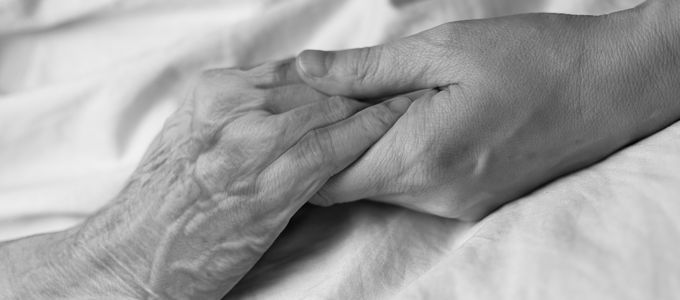
Whether it has to do with organ donation, euthanasia, or measures to prolong life, modern medicine repeatedly confronts us with existential decisions. Following is an orientation guide from the point of view of the New Apostolic faith.
“The Beginning and End of Human Life” is the title of an elaboration by the Church’s Medicine Work Group (WG), which is comprised of qualified experts. The first part of this treatise was published by the Church magazine at the beginning of the year. The second half follows in the second issue of community, which has just been published.
Death occurs as a process
“You shall not murder” states the commandment of God. And man, having been created in the image of God, is especially worthy of protection. However, the options presented by the medical field in recent years can sometimes give rise to questions. This is particularly true now that organ donations have become possible, coma patients can be kept alive artificially, and the possibility of dying with dignity has become an issue in living wills.
And here the focus is always on the same question: what is the precise point at which death occurs? Or, to put it from the perspective of faith: at what exact point in time does the soul separate from the body?
Death is not a singular event, but rather a process: one by one, the organs of the body begin to fail, a process which ultimately leads to cardiac arrest and brain death. Individual cells of the body—for example connective tissue—can even survive for weeks afterward. So how is it possible to determine the exact time of death? ?
Focus on the controlling organ
“The brain is the decisive organ controlling the body,” explains the Medicine WG. “After its death, all organs and tissues inevitably die. Brain death usually occurs a few minutes after a final cardiac arrest.”
Medical professionals can diagnose brain death—that is, the complete and irreversible failure of the brain’s functions—even while the heart is still active. This has led to the insight that from the medical point of view it is no longer cardiac death, but brain death, that is the criterion for death.
For many countries, from a legal point of view, death occurs at the point when brain death is diagnosed by a physician in a mandatory medical assessment. Christian churches also recognise this criterion.
The orientation guide
These and other considerations comprise the basis for the official position of the New Apostolic Church on the end of human life:
- “The exact point in time at which the soul separates from the body cannot be determined. Neither biblical witness nor any scientific procedure allows us to ascertain this. In addition, living and dying are interwoven in such a way that a clear definition concerning the exact point in time at which a soul separates from the body seems arbitrary.
- “In order to best protect man, who is the image of God, the Church unconditionally respects human life until brain death and rejects interventions that attempt to actively bring about death.
- “The Church assumes that the separation of soul and body takes place at brain death. Dealing respectfully with the soulless body is a tradition within many religions; this also applies to situations in which, following brain death, respiration and blood circulation are artificially maintained in order to remove organs for transplantation.”
However, there is something else entirely that is much more important than the exact moment of death, emphasises the Work Group, namely for ministers and loved ones to accompany the dying as they embark on their final journey.
Photo: Casual-T




